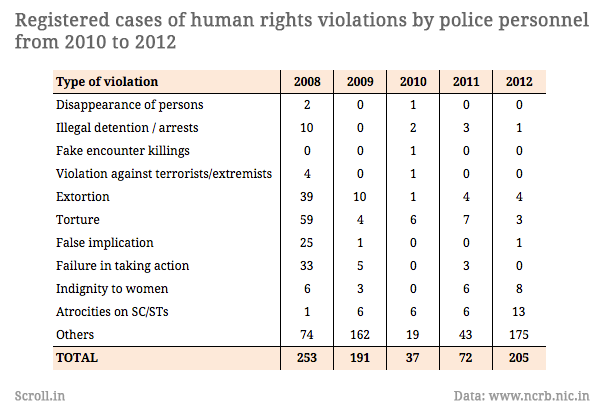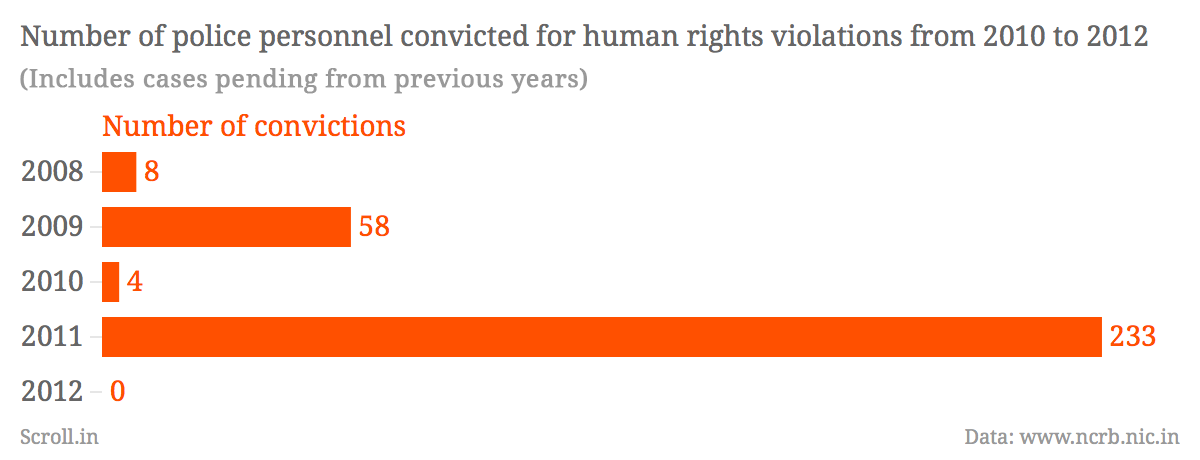Report “misleading”, defamatory and factually incorrect
New Delhi: Commemorating the 39th
anniversary of imposition of Emergency at Indian Women's Press Corps (IWPC), Jantar
Mantar and Gandhi Peace Foundation, Justice Rajinder Sachar, former Chief
Justice, Delhi High Court repeatedly expressed his outrage at the manner which
the so –called Intelligence Bureau (IB) report has committed contempt court of
the Supreme Court, the Delhi High Court and the Parliament. He asked, “will IB
decide or law will decide?” whether or not organizations named in the report
are complying with the report. He said, this agency has transgressed its
jurisdiction.
He raised the issue of Delhi High Court’s verdict on
the funding of Congress and BJP by the London based Vedanta company and how
protest against such a company can be deemed anti-development and anti-national.
He said, “like a sensible businessman”,
Vedanta funded both the ruling party and the opposition party. It is not surprising
that IB is speaking on their behalf.
Kavitha Krishnan, noted social and women rights
activist underlined how there is no conflict between development and
environment but in a strange application of logic IB report will have us believe
that they who defend environment are anti-national and they who speak for
development are patriotic.
Sanjay Parikh, Advocate, Supreme Court who has
fought most the cases named in the IB report on behalf of social organizations
wondered that so far he has been pursuing these cases in national interest and
for the future generations. But now IB report in its wisdom contends that they
who work for environmental protection are anti-national and anti-development.
On the issue of IB report’s section on GMOs (genetically
modified/engineered organisms), he said that the IB report by making specific mention of the Supreme Court cases and
influencing Court-appointed Technical Expert Committee Report (TEC) has
committed contempt of court.
The IB report attributes
motives to the Parliamentary
Standing Committee Report which is akin to interfering with
the parliamentary process.
He wondered as to IB report will justify its
reliance on the opinion of Dr
Ronald Herring of Cornell University who promotes GMOs and the monopoly of
Monsanto. How can Government of India be blind to the design
of the global GMO seed industry which
wants to tame India’s regulators
to approve GMOs, by-passing scientific, transparent and independent safety
testing.
If India's intelligence agencies become
instruments of global corporations working against the public interest and
national interest of India, our national security is under threat.
This IB report is deeply anti-national and
subversive of constitutional rights of citizens in our country. It does
India no credit.
Justice Sachar noted as to how the Prime Minister
has been misled by the IB’s report because it does not disclose the verdict of
the Delhi High Court dated 10.09.2013 in the matter of Indian Social Action
Forum and the compliance order of Ministry of Home Affairs dated October 9,
2013. Someone in IB must be held accountable for this grave act misleading the
government.
Gopal Krishna of Citizens Forum for Civil Liberties
(CFCL) argued as to how does IB infer that allowing our country to become a
dustbin for the hazardous wastes of the developed countries is in national
interest. India generates so much hazardous wastes of its own. It has not been
able to manage it till date and has no blue print to do so in future. How is
allowing of hazardous wastes in the country in national interest and for national
development. How can colonization of Alang beach for dumping of end-of-life
ships in Indian waters by ship owning countries of the developed world be
deemed an act of patriotism? IB’s report fails to recognize that Government of
India has a legal obligation to ban hazardous waste trade in compliance with the
Supreme Court order, UN’s Basel Convention to which India is a signatory and
Ban Amendment. If the report in question
is indeed from the IB then its acceptance of Lawrence Summers’ Principle is
indefensible and anti-national because it originated
from a 1991 memo by Lawrence Summers, former Chief Economist of the World Bank.
In this memo, he promoted dumping toxic waste in the Third World for economic
reasons: “Just between you and me, shouldn’t the World Bank be encouraging more
migration of the dirty industries to the LDCs [Least Developed Countries]? […]
A given amount of health impairing pollution should be done in the country with
the lowest cost, which will be the country with the lowest wages. I think the
economic logic behind dumping a load of toxic waste in the lowest wage country
is impeccable and we should face up to that.” This principle advanced the
argument of transfer of harm to the developing countries and externalization of
human and environmental costs. This is essentially the
principle from the colonial era which cannot be accepted in national interest.
On the issue of Par-Tapi-Narmada link project which
part of Interlinking of Rivers (ILR) project, Gopal Krishna argued as to how
can diversion of rivers be allowed in the name of development without learning
lessons from Ara sea disaster which dried because of diversion of two Siberian
rivers. How can the resolution of Kerala Assembly rejecting ILR project be
ignored? How can Prof. S R Hashim Commission report of September 1999 that
rejected linking of Himalayan and Peninsular rivers be forgotten? Is it in
national interest to ignore the fact that Brahmaputra, Ganga and Kosi are
transboundary rivers? Rivers are “veins and arteries” of nature, is it in
national interest to allow their mutilation in the name of ILR? Aren’t such
initiatives climate insensitive and outdated as they were conceived where
climate crisis was not yet an admitted reality? IB report fails to appreciate
these issues of far reaching implications.
A Statement of Concern
signed by many eminent personalities, academicians, human right activists,
concerned citizens etc. from all over India against this so-called IB report
was shared with the media. The statement titled "Uphold Sustainable
Development! Condemn `Foreign Funded’ Destructive Development Promoted by IB expressed
deep shock “at the
dubious methods used by the Intelligence Bureau (IB) of the Home Ministry of
India, to discredit many important social activists in the country who have
committed their lives in social action for years. For a long time, these activists have
consistently questioned the destructive path of development India is following
and have demanded a model of sustainable and equitable development which does
not harm the environment, local communities, culture and the future
generations.”
Uphold
Sustainable Development!
Condemn
`Foreign Funded’ Destructive Development Promoted by IB!
We, the
undersigned, are deeply shocked at the dubious methods used by the Intelligence
Bureau (IB) of the Home Ministry of India, to discredit many important social
activists in the country who have committed their lives in social action for
years. For a long time, these activists
have consistently questioned the destructive path of development India is
following and have demanded a model of sustainable and equitable development
which does not harm the environment, local communities, culture and the future
generations.
For obvious
reasons, the IB has selected activists connected with issues like POSCO,
genetically modified food, nuclear energy, etc and branded their promotion as
`development for the nation’ and those activists who question the
un-sustainability, environmental implications, the impact on livelihood of
thousands people and other social costs of such `proven disasters’ have been
named `foreign funded’ activists trying to block India’s development. We
condemn the IB report on the following reasons:
1. IB report is a calculated character
assassination attempt on a large number of credible activists in this country
including Admiral Ramdas, Justice P K Mishra, Medha Patkar, Dr. SP Udayakumar, Achin Vanaik, Praful
Bidwai, Prashant Paikray, K. P Sasi, Dr. Surendra Gadekhar, Babloo Loitongbam,
Lalita Ramdas, Late Banwarilal Sharma, Late Fr. Tom Kochery, Aarti Chokshi, M G
Devasahayam, Aruna Rodrigues, Kavita Kuruganti and others. We understand that the
present government is planning to execute a major corporate agenda of
destroying India’s land, water and forests. Therefore, this slander campaign is
only to clear the ground to benefit the Indian and foreign multinational
interests.
2. We strongly oppose the use of the term
`foreign’ to describe credible activists of this country. We consider it as
only a political gimmick to facilitate the real `foreign’ interests.
3. Among the issues mentioned is POSCO
which is already discredited very badly in India and abroad and this
multinational company is investing one of the largest `foreign’ investments of
Rs. 54,000 Crores, causing large scale livelihood problems and displacement of
tens of thousands of fisher folk, farmers, Dalits and Adivasis. This `foreign
funded’ project is also violating all norms of existing laws of protection of
the forests under the Forest Rights Act and protection of the coastal lands
under Coastal Regulation Zone Notification and many rights of women and
children. The draconian project is also responsible for throwing over hundred
bombs on the struggling villagers and over 100 people have been shot in
peaceful protests. We extend our full solidarity and support to the local
villagers against this `mega foreign funded’ project.
4. Among the other issues mentioned, the
people’s movement against Koodankulam nuclear plant is noteworthy. Perhaps the
IB should check the developments of nuclear plants in Japan, Germany, the
United States and other countries and explore the reasons for why they are
closing down the operations on nuclear energy due to large scale social and
environmental disasters followed by large scale protests of people against such
destructive developmental projects even in these `foreign’ countries whose
nuclear technology is more advanced than what is there in India. IB should also
understand that the immediate effects of radiation due to Koodankulam nuclear
plants will be on southern Tamil Nadu, Southern Kerala and Northern Kerala and
if the IB wish to lead a life without cancer and genetic disorders for their
children and their own future generations, it is most advisable that they
remove their officials from this `foreign’ initiated nuclear plant. The IB
should have the minimum intelligence to understand that you suffere from cancer
and Down syndrome due to radiation from any `foreign’ installation like
Chernobyl, Fukushima,Three Mile Island or a nuclear plant in Koodankulam. The
health effects and the environmental impacts are similar. We hereby extend our
full solidarity to the struggle of the brave villagers of Koodankulam under the
leadership of Dr. S P Udayakumar.
5. The other issue which is mentioned in
the report is GM (Genetically Modified)) crops. The hazards of such crops are
well known in India as well as abroad. The interests of such development is
only for the `foreign’ multinationals like Monsanto. While the IB has assumed
all these destructive projects as `national interests’, it has conveniently
ignored the objections to GM crops by the Moratorium Orders of Shri Jairam
Ramesh, the Parliamentary Standing Committee Report and the Supreme
Court-appointed Technical Expert Committee Report (TEC) because they have found
that GM crops have little to contribute to Indian agriculture, safe food and
food security in this country. We bring to your notice that IB has no business
to indirectly facilitate a foreign multinational company like Monsanto and
malign the credibility of activists who are raising the question of large scale
potential disaster to this nation due to GM crops.
6. Singling
out “activism against Extractive Industries in North East” as a separate issue
in the report, painting legitimate and
democratic people’s development related activities and the struggle to stop
mass extrajudical executions in the Supreme Court by local organizations as
anti-national and anti-development amounts to a deeply discriminatory slant. A
number of false, unfounded allegations such as “routing of foreign funds” have
been raised without any rational or factual basis naming two NGOs of Manipur
and linking them to other organizations at the national level in an imagined
association that is untrue. On the other hand there is no “Manipur Coalition of
Extractives” as alleged in this report. The IB report is concocted by
uninformed sources.
7. The document of IB report which was
classified as a `secret report’ was released by the IB itself to the press with
an agenda to malign, scandalize and create a character assassination of
credible activists in this country. We strongly condemn such dubious methods.
8. As far as the few NGOs mentioned are
concerned, it is clear that the IB has conveniently selected them due to their
stands on the above issues and it has nothing to do with foreign fund. The
Intelligence Bureau knows that there are over 40,000 NGOs operating in this
country and they never objected to the visit of Narendra Modi for blessings
to one of the largest foreign funded NGO
under Mata Amritandamayi, a well known hub of RSS activists. IB had no problem
when even BBC reported that large scale foreign fund was diverted by the NGO called
Vanavasi Kalyan Kendra, another hub of the Sangh Parivar, for the brutal murder
of over 2000 innocent Muslims in Gujarat. Therefore, it is obvious that the IB
is facilitating a political game rather than serving any national interest.
9. We would also like to bring to your
notice that the space for criticisms of any Government is a crucial space which
is fundamental to any democracy. What the IB is attempting to do is to block
this important critical space which is against long-term national interests.
10. We are aware that thousands of crores
of rupees are regularly being spent on the unaccountable and illegitimate
intelligence agencies in this country and such financial resources collected
from the tax payers’ money in this country is ultimately getting used against
the rights of the citizens of this country. The present IB report is a classic
example. We demand a drastic cut of such financial resources which are
regularly used against the rights of the minorities, Dalits, Adivasis, the
people’s movements and activists in this country for the preservation and
sustainance of democracy. We also demand
that all the financial resources used by the intelligence agencies be
brought under public audit and be reported to the Indian Parliament so that
such institutions also realize that there is a public accountability which
rests on them.
11. We demand that immediate action on all
those officials be undertaken for executing such criminal behavior and misusing
their official powers.
Due
to all the above reasons, we are convinced that the IB report is only a
politically motivated instrument of the vested interests in this country. We
strongly condemn the public use of IB against activists, people’s movements and
credible journalists.
We
appeal to all members of the civil society to condemn the IB report and
strengthen the people’s movements for they are the only source and hope for the
survival of our future, despite the interventions of irresponsible politicians
and irresponsible intelligence departments.
We
appeal to all members of the civil society to uphold sustainable and equitable
development, no matter what the authorities speak of destructive foreign
motivated development as `national interest’!
We
appeal to all members of the civil society to speak up against the suppression
of critical voices, without which in the final analysis, freedom of all
individuals will be at stake very soon.
Prof.
Romila Thapar
Dr.
Mallika Sarabhai, artist and activist
Mahesh
Bhatt - film director, producer
Maj
Gen (Retd) S.G.Vombatkere
Vrinda
Grover - Lawyer - Supreme Court of India
Anand
Patwardhan, film maker
Buddhadev
Dasgupta, filmmaker.
Prof
KN Panikkar, historian
Aruna
Roy
Sandeep
Pande, activist
V
Suresh, National General Secretary, PUCL
Dr(Brig)
R S Rajan (Director, Vivekananda Institute for Leadership Development, Mysore)
Dr
P M Bhargava (Molecular Biologist & Former Member, National Security
Advisory Board; GoI)
Manisha
Sethi, Associate Professor, Jamia Milia Islamia Univesity
K.
Satchidanhandan, Ex Chairperson, Kendra Sahitya Academi
Ajit
Shahi, Former Editor, Tehelka
Goutam
Ghosh, film maker
Kavita
Krishnan, Secretary AIPWA
Sadanand
Menon, art critic, journalist.
Kedar
Misra (Poet and journalist, Odisha)
S.
N. M. Abdi, journalist
Debabrata
Roy Laifungbam, Convenor, Civil Society Coaliation on Human Rights in Manipur
and the UN
Raja
Sen, filmmaker
Sunanda
Mukhopadhyay, Chairperson - West Bengal Women's Commission.
Malini
Bhattacharya, ex MP.
P
Baburaj, film maker
Leena
Manimekalai, Poet, Filmmaker
Amar
Kanwar - film maker
Kshetrimayum
Onil, Just Peace Foundation, Manipur
Kavita
Srivastava, National Secretary, PUCL
Prof.
Mihir Bhattacharya
R.P.
Amudhan, Film Maker
Bidyarthi
Chatterji, film Critic.
J
Devika, historian, social critic & feminist
Teesta
Setalvad
Sohini
Dasgupta, filmmaker.
K
R Mohan, former Chairperson, Kerala Chalachitra Academi
Gopal
Menon, film maker
B.
Suresh (film Director & play writer)
Sadique
Hossain, Yuva Sahitya Academy Award Winner Author.
Ashok
Viswanathan, filmmaker.
T
V Chandran - film maker.
Prof
A Marx - writer, critic.
Sampad
Mohapatra -Journalist,Odisha
Soumitra
Dastidar, documentary maker,columnist.
Sudarshana
Chakraborty, Journalist,documentary maker.
Dr.
Ram Puniyani
Pradosh
Pattanaik., Journalist, Ex Editor of "The Samaja "premier Odisha
daily.
Bhabani
Charan Pattanaik.-Freedom Fighter and Ex Rajyasabha member.
Fr
. Jimmy C Dabhi (Human Development & Research Centre, Ahmedabad)
Ramdas
Rao, PUCL, Karnataka
Rabi
Das-Senior Journalist ,Odisha.
Babloo
Loitongbam, Executive Director, Human Rights Alert, Imphal
Basantakumar
Wareppa, Lawyer, Manipur
Mary
Beth Senate, Rural Women's Upliftment Society, Manipur
Renu
Takhelambam, President, Extrajudicial Execution Victim Families Assocaition,
Manipur
Shabnam
Hashmi
Joy
Chingakham, Vice President FRIENDS, Manipur
Nandini
Thockchom, Forum for Indigenous Perpective and Action, Manipur
Leishangthem
Ranjana, Forum for Indigenous Perpective and Action, Manipur
U
Nobokishore, North East Dialogue Forum, Manipur
O.
J. Metei, United NGO Mission Manipur
Dr.
Vijayamma, journalist & feminist
Jagadish
Chandra, activist, Bangalore
Dr.
Swarajit Jana, social activist.
BRP
Bhaskar, activist, Kerala
Civic
Chandran, activist, Kerala
Prof.
K.P. Jayasankar
Dr.
Vinod Vyasulu
Prof.
Anjali Monteiro
K
R Seshadri
Subhodip
Maitra, writer, journalist, cultural activist.
Ambrose
Pinto
Prafulla
Samantara
Dr.
T T Sreekumar, Assoc. Prof. & Chair, FPM-C, Mudra Institute of
Communications, Ahmedabad
Sudhir
Patnaik, editor/journalist
G
R Vidyaranya, Social & RTI Activist, Mysore
Syed
Tanveeruddin, RTI, Human Rights and Social Activist, Mysore
Prof.
Moidul Islam
Prof.
Barnali Ghosh
Arundhati
Duru, activist
and
many others.



